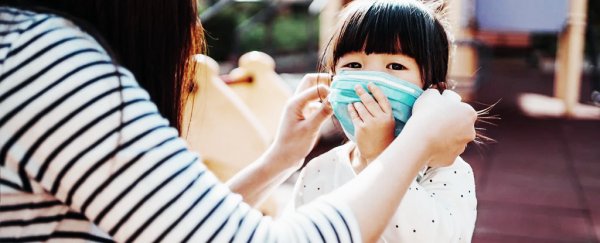The increase of COVID-19 cases across the US calls for quick action. Sure, you and your family are exhausted from distancing, you miss your loved ones and you want to get back to your support groups or church.
But the coronavirus, which causes COVID-19, does not stop just because we are tired. In the absence of clear, consistent directions from the federal government, it is more important than ever that people pay attention to the medical and public health facts.
"The next couple of weeks are going to be critical in our ability to address those surges that we are seeing in Florida, in Texas, in Arizona and other states," Dr. Anthony Fauci, the nation's top infectious disease expert, told Congress June 23.
Fauci and other public health experts testified before the House Energy and Commerce Committee. Fauci told Congress that he sees a "disturbing surge" in many parts of the country.
As an infectious disease epidemiologist from Arizona, one of the current US hotspots, here are five things I urge you to do right now:
1. Wear a mask
The World Health Organization recommends medical-grade masks for those people age 60 and over, or those with health issues, and triple-layer cloth masks for everyone else over the age of two. If you can't find those triple-layer masks, you can use a simple cotton or silk cloth face covering to reduce the number of viral particles you emit or are exposed to.
Make sure it covers your mouth and your nose. I have seen too many people wearing masks on their chins. And watch your hand-face contact – you can infect yourself by adjusting the mask too much and repeatedly touching your face.
2. Physically distance
Avoid crowded spaces. If you want to visit friends or family, you must still wear a mask – and keep six feet (1.8 metres) apart. If at all possible, have these visits outdoors.
Indoor activities are most commonly associated with SARS-CoV-2 transmission clusters. Transmission outdoors is less likely, and if you are in places other than Arizona (where the temperature is 41 Celsius or 106 Fahrenheit as I type this), it is probably ideal summer weather to be outdoors.
3. Wash your filthy hands
And, yes, they can be really dirty, even if they do not appear so. Bacteria and viruses can lurk on them, spreading infection from surface to surface and person to person. And then wash them again. Hand-washing is critically important.
I wash every time I walk into the house. Immediately. The benefits of hand-washing regularly may seem obvious, but many forget them. According to studies, washing for about 15 seconds reduces bacterial counts by about 90 percent of the germs on your hands.
Washing for an additional 15 lowers the count to about 99 percent. And yes, hand-washing is better than sanitizer because the soap and water mechanically rid your hands of germs.
That said, I keep a small bottle of hand sanitizer in my car and wipes for after shopping.
4. Plan ahead in case you or someone in your household gets sick
The reality is that many more of us are going to get sick before this pandemic is over. Planning ahead can give you some peace of mind that you are prepared.
This includes doing such things as identifying people or services to transport essential items to your home and developing an emergency contact list. Also, keep cleaning high-touch surfaces, such as light fixtures, faucets and countertops, regularly.
Know the symptoms and emergency warning signs for COVID-19. Also, if you live alone, find a buddy who will check in on you regularly in case you get sick. Prepare a kit for yourself that you can keep by your bed.
5. Maintain awareness of the situation in your community
I know, the data is hard to sort out right now, but one thing to look for in your community is a decline in local cases.
Local and state health departments are still providing updated numbers on cases. You can also follow an independent source that is assessing local situations.
This is a time of uncertainty and anxiety for all of us. We desperately want to get back to normal, but it just isn't possible yet.
So find time each day to take care of your mental health. Take a walk, talk to a friend, read a book, snuggle with a pet, meditate, reach out to others who may need your help, while still social distancing, and advocate for our most vulnerable populations.
Your life and those of your loved ones depend upon following public health guidelines.
Kacey Ernst, Associate Professor of Epidemiology and Biostatistics, University of Arizona and Paulina Columbo, Graduate student, Public Health, University of Arizona.
This article is republished from The Conversation under a Creative Commons license. Read the original article.
